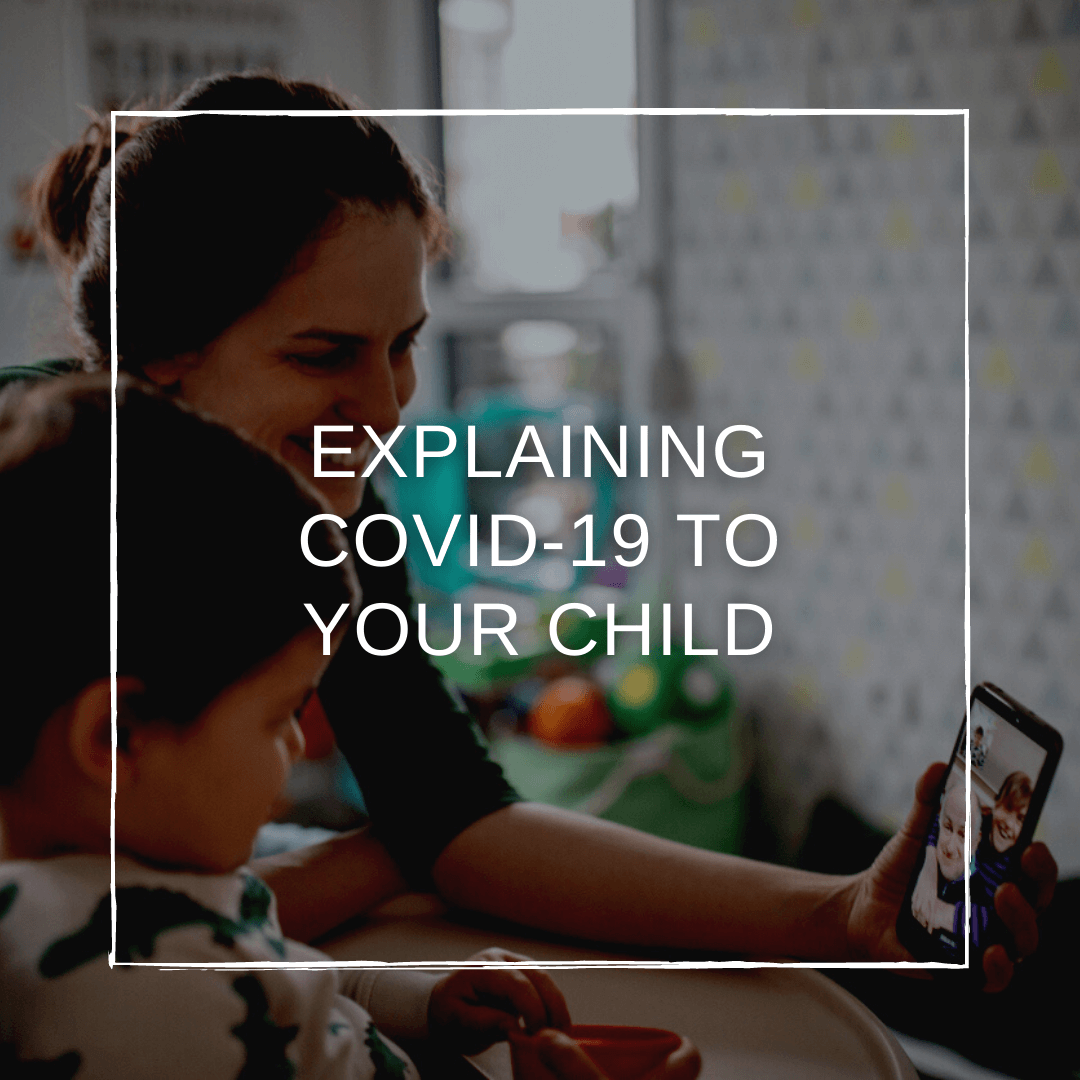Your Cart is Empty
EVERYDAY SAVINGS IS HAPPENING NOW!!!

The holiday season will be different from years past. Instead of large gatherings of friends and family, groups will be smaller in size and festivities may shift to a virtual environment.
These changes can be difficult for children to understand. It can be difficult to connect the dots between the increase in handwashing and not being able to see their aunts, uncles, or grandparents.
However, there are ways to make it easier for them. By following some common guidelines, you can better explain how these differences today will make it easier for next year’s holiday season to look much more normal.
General Tips for Explaining COVID-19
Your primary goal in explaining the situation to your children is to make it clear that you are there for them. It’s okay for them to be upset or to be anxious. This is an upsetting time for most and anxiety is a natural side effect of that. What’s essential, though, is making sure those emotions don’t lead to behaviors or attitudes that may be unhelpful or dangerous.
Ideally, you should reassure your child that he or she is safe. You can focus on safe behaviors that everyone can take, such as washing hands, wearing masks, and keeping a safe distance from people outside your household. If your child forgets to do one of these things, it may be best to avoid punishment. If he or she becomes afraid of making a mistake, the child may become more anxious and less equipped to handle it.
It can also be helpful to pay attention to what your child is hearing or seeing. Reducing COVID-focused screen time, such as the news programs, and redirecting attention elsewhere can help ensure he or she isn’t spending every waking moment inundated with the pandemic. This, of course, may help you deal with any anxiety, too.
Facts About COVID To Keep in Mind
Your child has likely had his or her typical schedule or routine already interrupted by COVID. School lessons may have pivoted to a virtual environment. Your child may already realize he or she hasn’t seen people outside the home as often as before. You probably have had to encourage your child at least once to wear a mask or keep a safe distance from others, even if they’re family members.
Children develop quickly, so they may have questions now that they didn’t have when shutdowns and new rules were implemented previously. If this is the case, make sure to have some answers ready for them.
COVID-19 is a new virus that scientists, doctors, and researchers are still studying. Luckily, due to the amazing work done by several different groups of experts, a vaccine has already been created that will help stop its spread. Most likely, the first people to receive this vaccine will be doctors, nurses, and those dealing directly with the virus. Soon afterward, though, it should be available for everyone to use.
Meanwhile, people still need to make sure they are acting safely. That’s why we need to wear masks whenever we’re with people who don’t live with us. It’s also why we need to make sure to do a really good job washing our hands regularly. This just doesn’t protect us, but it also protects the people we care about. We all have a part to play in making the world a better place again.
It’s OK to Not Know
As stated above, the goal of discussing COVID and the holiday changes is to reassure your child that he or she is safe. As part of that goal, you should make it clear that you are always available to help answer questions.
However, you need to know that you don’t have to suddenly become an epidemiologist to feel prepared for this talk. It’s OK to not have all the answers, and it’s OK to tell your children that. Not having the answer readily available could present an opportunity for you to research it together. This can help bring you both closer together and keep you both informed.
Your child may also ask you questions based on rumors or other things overheard from peers, siblings, or on the internet. It’s important to highlight that even though there are things you don’t know, there are some foundational facts, as well:
· COVID is real
· Everyone must take action to prevent its spread
· The best way to prevent its spread is by wearing masks, washing your hands, and staying at least 6 feet away from people who don’t live in your home
Make Sure To Keep Your Own Anxiety in Check
Just as it’s natural for your children to feel anxious, it’s normal for you to feel anxious as well. Anxiety is neither a good nor a bad emotion. The way we handle our anxiety, though, can make it beneficial or detrimental.
It’s OK to tell your child that you’re anxious, but be aware of how your anxiety presents itself. Doomsdaying or overreacting to news can increase the level of anxiety in your child. Turning off the news and spending time outside can help lower stress levels and give everyone a healthy outlet.
This holiday season will be different than previous ones. However, it’s essential to reiterate to your children that just because it’s different doesn’t mean it’s bad. With virtual get-togethers, drive-by parades, and online games, your children should still experience the warmth and love they feel from their family. If things are difficult, it’s OK to recognize that. By being there for your children, though, you can help them and yourself get through this so that next year’s holiday season is an in-person celebration for all of your loved ones.